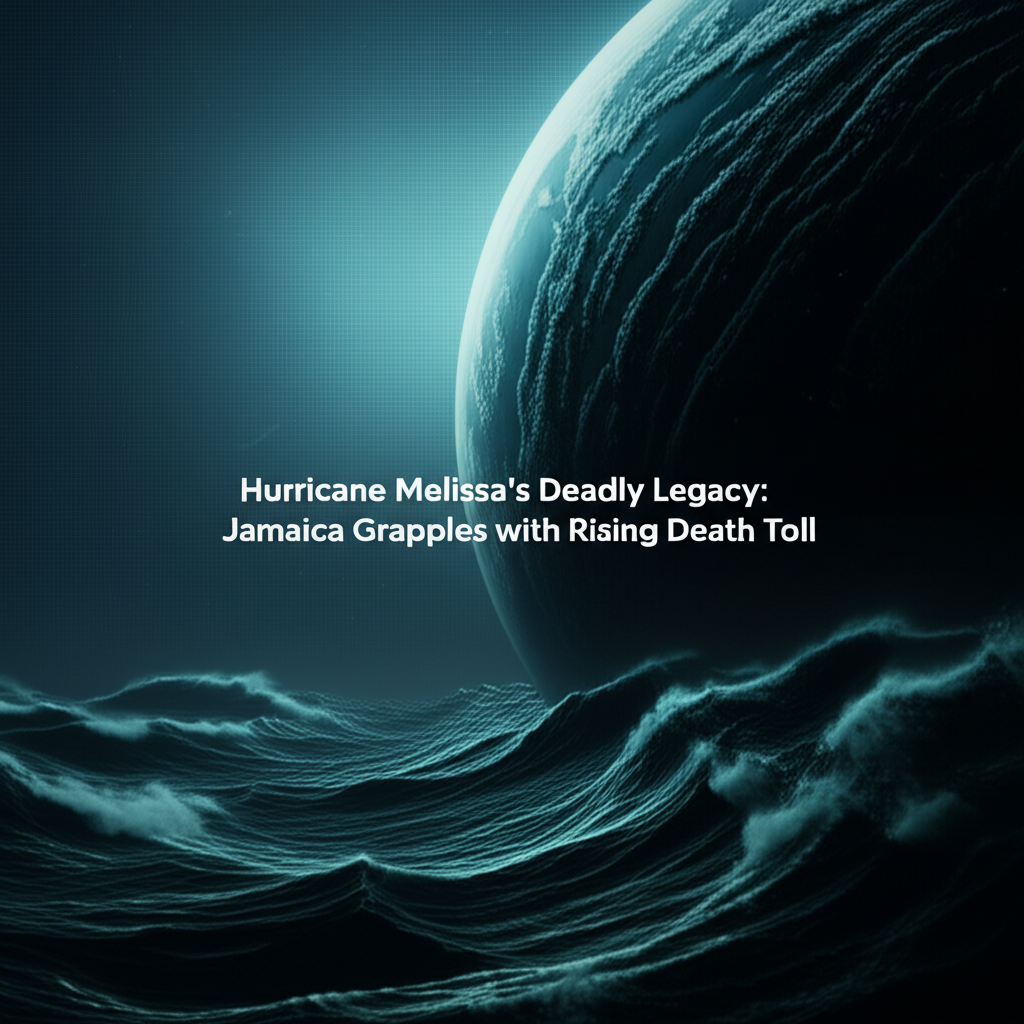Hurricane Melissa's Deadly Legacy: Jamaica Grapples with Rising Death Toll
The Caribbean Nation Faces Immense Loss and a Long Road to Recovery

The beautiful island nation of Jamaica is currently enduring a period of profound grief and immense challenge following the catastrophic passage of Hurricane Melissa. The storm, which swept through the Caribbean with devastating force, has left a trail of destruction, and tragically, a rapidly rising death toll. Prime Minister Andrew Holness recently confirmed that the number of lives lost has now tragically reached 28, a sobering update that underscores the severe human cost of this natural disaster.
A Community in Mourning: The Growing Loss of Life
Prime Minister Andrew Holness's announcement on Saturday added nine more confirmed fatalities to the already tragic count, pushing the total to 28. Each number represents a life cut short, a family shattered, and a community plunged into sorrow. The initial devastation often obscures the full extent of human loss, and as search and rescue operations continue, there is a somber acknowledgment that this number could still tragically increase.
The storm's fury brought widespread flooding, mudslides, and structural collapses, making many areas inaccessible and hindering early relief efforts. Reports indicate that victims were tragically caught in torrents of water, buried under debris, or succumbed to injuries sustained during the tempest. The focus remains on identifying the missing and providing support to the bereaved families, even as the scale of the humanitarian crisis becomes clearer.

Beyond the Numbers: The Broader Impact of Hurricane Melissa
While the death toll is the most heart-wrenching statistic, Hurricane Melissa has inflicted far-reaching damage across Jamaica. Infrastructure, including roads, bridges, and communication networks, has been severely compromised, isolating many communities. Homes have been destroyed or rendered uninhabitable, leaving thousands displaced and in urgent need of shelter, food, and clean water.
The agricultural sector, a vital part of Jamaica's economy, has also been hit hard, with crops wiped out and livestock lost. This not only poses an immediate food security challenge but also threatens the livelihoods of countless farmers and their families for the foreseeable future. The long-term economic repercussions of such a significant natural disaster will be felt for years to come, impacting tourism and other key industries.

Mobilizing Aid and Long-Term Recovery Efforts
In the wake of the disaster, local authorities, supported by international aid organizations, are working tirelessly on recovery efforts. Emergency response teams are focused on restoring essential services, providing medical assistance, and distributing humanitarian aid. The immediate priority is reaching isolated communities and ensuring that those affected receive critical supplies.
Looking ahead, Jamaica faces a monumental task of rebuilding. This will require significant financial investment, strategic planning, and sustained international cooperation. Discussions are likely to turn towards resilient infrastructure, early warning systems, and strategies to mitigate the impact of future extreme weather events, which are increasingly influenced by climate change.

Conclusion: Resilience in the Face of Adversity
The tragic death toll from Hurricane Melissa is a stark reminder of the vulnerability of island nations to powerful natural phenomena. As Jamaica mourns its losses, the resilience of its people will be tested. The path to full recovery will be long and arduous, but with continued support and solidarity, the nation can hope to rebuild stronger and more prepared for the challenges that lie ahead. Our thoughts are with all those affected by this devastating natural disaster.





